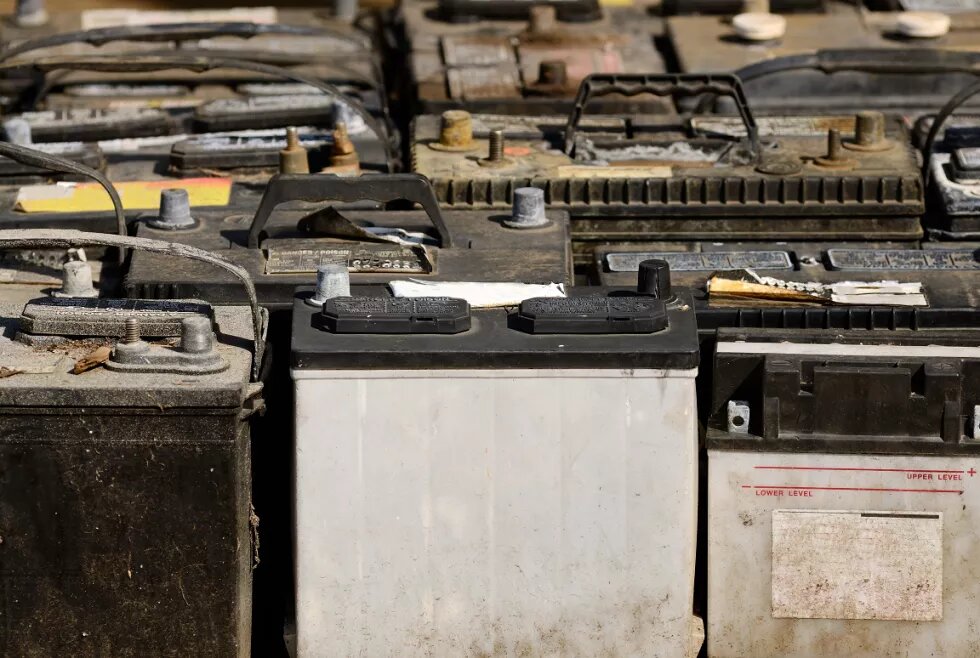We speak to Terseer Ugbor from the Alliance for Responsible Battery Recycling (ARBR), who helps us unpack the challenges and achievements of battery waste management in Nigeria in a rapidly growing renewable energy sector.

The demand for residential, industrial and commercial energy in Nigeria has been significantly increasing over the last two decades. This is a result of the increase in the standard of living, economic development and population growth. Of the estimated national energy demand of 30,000 megawatts, less than 5,000 megawatts is currently being supplied via the national grid, leading to power outages and the widespread use of diesel generators in Nigeria. To achieve Sustainable Development Goal 7 by 2030, which is to “ensure access to affordable, reliable, sustainable and modern energy for all,” investment into the renewable energy sector is paramount both for citizens’ well-being and economic growth.
In addressing access to power challenges, the Federal Government of Nigeria, among other things, passed the Electric Power Sector Reform Act in 2005 and launched the National Renewable Energy and Energy Efficiency Policy (NREEEP) in 2015 to showcase its commitment to improving the country's electricity supply on a sustainable basis.
Since then, the decentralized renewable energy sector in form of mini-grids and other stand-alone solutions has been growing steadily. Most of these installations are heavily dependent on the use of batteries for energy storage, raising critical questions about the responsible management and disposal of used batteries in a country with a poor track record in the handling of e-waste.
To unpack some of the challenges and achievements in this regard, the Heinrich Böll Foundation Abuja Office spoke to one of its partners, Terseer Ugbor from the Alliance for Responsible Battery Recycling (ARBR).
What is the current situation with regards to battery usage and recycling in the context of Nigeria’s growing renewable energy sector?
Over the last four years, the Recycling and Economic Development Initiative of Nigeria (REDIN) along with the Alliance for Responsible Battery Recycling (ARBR) have worked towards collecting data and evidence of the growing battery usage and recycling activities in the country. Studies have shown that Nigeria is a high polluting zone from battery recycling activities, with toxic materials such as lead, lithium, cadmium, nickel and acids released into the environment from the indiscriminate disposal and recycling of e-waste, including lithium-ion and lead-acid batteries used for energy storage purposes.
Waste batteries are mostly collected by unlicensed informal collectors and manually broken to release waste acids into the environment. The drained waste batteries are then transported in unlicensed trucks to recycling facilities with less than appropriate effluent treatment and pollution control equipment leading to lead and acid poisoning in the surrounding communities with serious effects on the kidneys, children’s IQ, and women’s reproductive health.
With Nigeria’s solar PV target projected at 13,000 MW by 2030 according to the Nationally Determined Contributions (NDCs), about 48 million batteries will need to be installed, replaced, collected and recycled within the lifespan of the solar panels. If a proper recycling mechanism is not implemented, Nigeria will be faced with a battery pollution challenge with potentially severe negative consequences.
What are the current regulatory frameworks to manage waste batteries in Nigeria?
The Federal Ministry of Environment has concluded the National Waste Battery Management Policy, while the National Environmental Standards and Regulations Enforcement Agency (NESREA) has established the National Environmental (Battery Control) Regulations 2021. These regulatory documents spell out specific requirements and guidelines for the usage, collection and recycling of used batteries in line with the Extended Producer Responsibility (EPR) model. The National Environmental (Electrical and Electronics Sector) Regulation 2013 is also in place and has recently been updated to include an EPR Requirement of e-waste management in Nigeria.
Nigeria is also a signatory to the Basel Convention, an international treaty that was designed to reduce the movement of hazardous waste between nations, and has adopted its guidelines for local management and transboundary movement of used batteries for proper recycling where a local recycling facility is not available.
What are the core objectives of the new waste battery policy?
The core objectives of the policy are to ensure that collection, storage, transportation, recycling, transboundary movements and disposal of waste batteries are done responsibly with little or no impact on the environment and public health. The policy requires global environmental best practices in the management of waste batteries in Nigeria as well as institutes mechanisms and coordination for effective and sustainable management of waste batteries.
The policy also provides mechanisms for the implementation of the EPR Programme for all stakeholders in the battery value chain, including battery producers, wholesalers, dealers, recyclers, collectors and consumers. It provides standards and guidelines for the management of waste batteries and mobilizes resources for effective and sustainable implementation of the policy.
Finally, the policy also spells out the role of institutional stakeholders and regulatory authorities in implementing the policy. This includes the roles of the Federal Ministry of Environment, States Environmental Agencies and Local Government Environmental Authorities.
What are the gaps and weaknesses of these policies?
Although current policy frameworks empower regulatory agencies like NESREA to monitor and enforce the guidelines specific to managing waste batteries in Nigeria, the lack of adequate resources, data and public awareness on the potential hazards of improper battery disposal is a major challenge to the effective implementation of these policies. This constitutes a significant threat in the context of the growth in battery usage in the country.
What are the implications of the waste battery policy for the renewable energy sector?
The policy has an important role to play in ensuring used batteries from the renewable energy sector do not end up in the hands of dirty recyclers with no skills or knowledge to handle waste batteries. The policy recommends a used battery take-back scheme to collect all used renewable energy batteries and channel them to the formal battery recycling process. The policy requires that all renewable energy operators subscribe to the EPR programme and provide data on the number and types of batteries being deployed around the country for private and public projects.
How will your alliance help to ensure compliance with best practice in the sector?
The ARBR has engaged the renewable energy sector to implement a used battery tack-back scheme for all types of batteries. In 2020, we designed the used battery policy for the Renewable Energy Association of Nigeria (REAN) and also became a member of the Renewable Energy and Energy Efficiency Associations Alliance (REEEA-Alliance) to collaborate on sector advocacy and implementation of the battery recycling programme for the sector.
In addition to this, the Rural Electrification Agency (REA), which is leading the electrification of Nigeria through solar mini-grid projects and solar home systems across the country, has partnered with the ARBR and has adopted the EPR Programme as part of requirements for private renewable energy firms participating in the Nigerian Electrification Project (NEP). Renewable Energy firms are required to submit datasheets of the types of batteries, number of batteries, lifespan of batteries and locations where these batteries are installed to ARBR. This will enable the ARBR monitor the performance of the batteries, lifespan efficiency and eventual take-back and recycling of end-of-life batteries from the projects nationwide.
The participating renewable energy firms are also required to pay a battery recycling fee on every battery installed during the Nigerian Electrification Project to enable us maintain a database of battery installations nationwide, conduct assessments on status of batteries installed in the sector and finance the logistics of collection and transportation of waste batteries to certified recycling facilities. However, compliance and enforcement of these requirements have been slow and challenging, but we look forward to improved enforcement by the Rural Electrification Agency.



